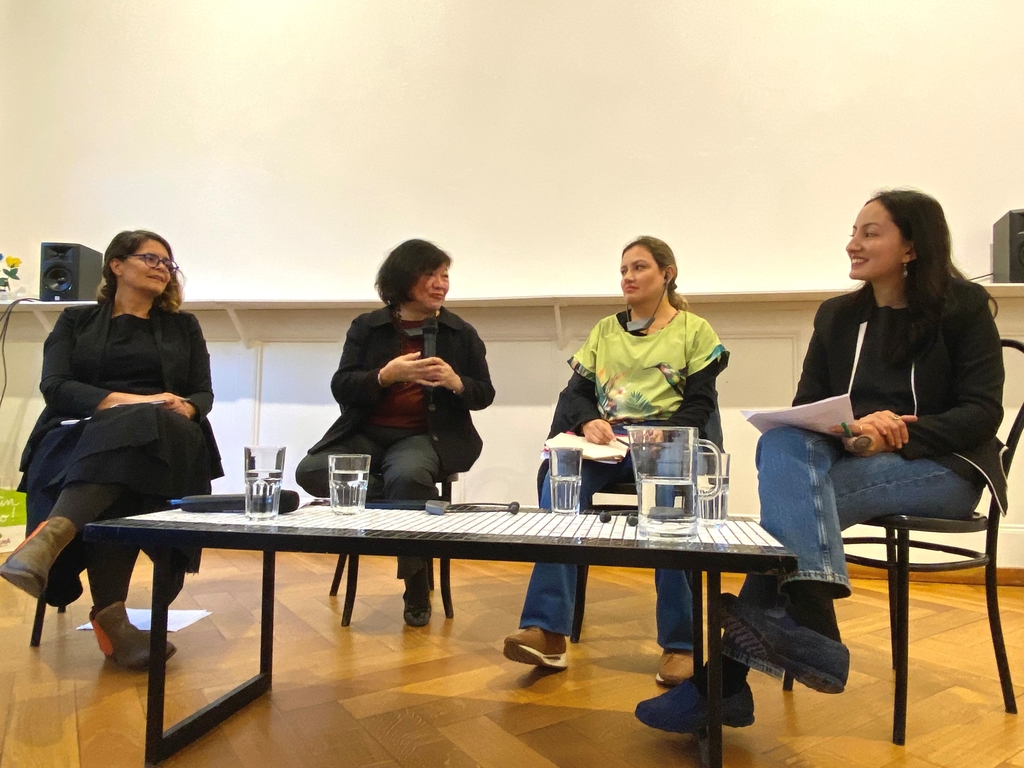Three different countries and contexts, each with different peace agreements and challenges in implementation. And yet, the three women from our partner organisations in Colombia, Nepal and the Philippines found many commonalities – in the experiences and insights shared by women peacebuilders and in what it takes to sustain peace. At a public panel in Bern, the three women talked about the importance of feminist principles in peacebuilding, particularly to prevent backsliding into armed violence, of safe spaces and self-care for activists and of not losing sight of the goal – sustainable peace.
Una versión del artículo en español se encuentra disponible para su descarga en esta página.
Peace work doesn’t work in isolation. It needs the collective strength of women peacebuilders. We believe in everyday peace and the values we carry in our work.
“You might be familiar with some of the contexts. You might have heard about the Women, Peace and Security agenda and you might yourself be looking for new and innovative ways to build and sustain peace. Tonight, we hope to offer you new sparks and new connections.” With these words, our director Deborah Schibler opened the event “Women sustaining peace in Colombia, Nepal and the Philippines: dealing with the past, transforming the present, summiting the future” on 16 October 2024 in Bern. The event was the culmination of a week filled with sparks and connections.
We invited Zully Meneses, director of Corporación Comunitar in Colombia, Trishna Thapa, deputy CEO of Nagarik Aawaz in Nepal and Karen Tañada, executive director of the GZO Peace Institute (GZOPI) in the Philippines to Bern to plan the next few years of our long-standing programmes in the three countries. We also invited them to Bern to give more visibility to feminist peacebuilding in countries where armed conflicts have formally ended and where new spirals of violence and/or challenges to the sustainability of peace persist. At the event, the women highlighted both the achievements made and the challenges faced by activists, to share insights into how peace efforts can be sustained in the long-term and what peace practitioners and activists can do to maintain their motivation and focus. Woven together, their insights, experiences and advice created a rich tapestry of feminist peacebuilding.
While Colombia formally signed a peace agreement with FARC-EP (Fuerzas Armadas Revolucionarias de Colombia - Ejército del Pueblo) in 2016, negotiations with ELN (Ejército de Liberación Nacional) and other armed groups are ongoing – peace remains elusive for many of its population. Nepal’s peace agreement was signed in 2006. Eighteen years later, the implementation of the agreement remains fragile and incomplete. In the Philippines, a decade has passed since the signing of the Comprehensive Agreement on the Bangsamoro. Despite the successful inclusion of some feminist perspectives in transitional justice processes, challenges remain to make these processes understood as a national and not just a regional opportunity.
On the achievements of women peacebuilders
While none of the countries can claim a linear or swift progression of the implementation of the peace agreements, Corporación Comunitar, Nagarik Aawaz and GZOPI, which collectively have almost 100 years’ experience in peacebuilding, can point to achievements – many of them thanks to women activists and for the benefit of women, LGBTIQ+ persons, indigenous communities and society at large.
Nepal’s peace agreement did not explicitly recognise women survivors of conflict-related sexualised violence. Only thanks to the persistent fight of civil society, conflict-related sexualised violence is now being recognised as a severe human rights violation. Government has changed its perception of women victims of violence, Trishna said. Nagarik Aawaz helps local governments “to find solutions for conflict-affected communities, because they are part of the wider community”. She also described a shift: where women were once pitied or worse, made responsible for what happened to them, they are now respected members of their communities.
Nagarik Aawaz fosters dialogue between the generation that experienced the armed conflict and the subsequent generations that are also affected by it “to break the cycle of violence and end the revenge feelings” of subsequent generations. It is also in these intergenerational conversations “where, indirectly, the peace process starts.”
“When you sign an agreement, it may not progress for years,” Karen, a veteran activist in the Philippines, said. GZOPI supports women in conflict-affected areas to move the implementation of the 2014 peace agreement forward, in particular by giving them the opportunity to study proposed laws for the Bangsamoro Autonomous Region in Muslim Mindanao and propose changes to these laws, to draft their own agenda and to lobby senators and members of congress to include women’s perspectives for justice and peace. “Bangsamoro is more traditional, but even in this context women are being given a voice and asserting themselves.”
In Colombia, “women have been invisible” across all levels of society, Zully said. “Thanks to the women’s movement we have made some achievements.” A focus has been on ensuring that women contribute to peace agreements and that they understand how institutions and processes work with the aim of fostering their participation. A significant contribution, which PeaceWomen Across the Globe supported, was the collection of women’s testimonies of their experiences during the armed conflict. They had the opportunity to come forward and participate in the Truth Commission, ensuring that their voices and stories were included in its report and became part of Colombian history. Reaching rural, indigenous and Afro-Colombian women was a particular challenge, Zully said, but they too overcame initial reluctance to share their stories of war and resilience. “We have had decades of violence and now we are building peace with the support of women. We need to get women to a level where they can participate and access places that are difficult to reach.”
On maintaining motivation and focus
The phase when peace agreements are being implemented is crucial for laying the foundations for sustainably peaceful societies. Deborah listed the required “key ingredients”: the conditions for sustaining long-term peace efforts must be in place, women’s agency must be supported to ensure their participation in peacebuilding, and activists must never lose sight of the political goals. Drawing on their vast collective experience, the three women shared some Dos and Don’ts to ensure motivation and focus are not lost.
Safe spaces for women to build networks, to strategise and draft proposals, to gain strength, to share trauma and to heal emerged as a key factor mentioned by all three women at the event. In Colombia, the “remilitarisation of the country” comes with women being pushed back into traditional roles. Violence against women remains very high, particularly against women who take on leadership roles. “We use safe spaces for women to continue the fight but perhaps less publicly,” Zully said. “We need to work together, to create networks,” she added. Safe spaces are crucial in a context where reforms have not yet been implemented and violence is rife.
For peace activists in the Philippines the changes in government have been a challenge. Karen cited a saying that points to the importance of remembering the past. “What was the truth? What were the struggles? With the son of [Philippine dictator Ferdinand] Marcos as president, it is important to hang on to the truths. It helps not to lose sight of the goal.” And in a country with many cultures and a “tendency to emphasise the ethnic”, she said efforts “for solidarity and sisterhood” are important. Maintaining a focus on the political goals helps to make the point that “it’s not just about ‘my’ family and ‘my’ goals” and to see the broader picture”.
Nagarik Aawaz incorporates “locally accepted and defined feminist principles” in its work with a range of communities, including those who became victims of the armed conflict and those who participated in it as combatants, Trishna explained. Sharing within and across communities is part of the long-term work of building peace, to ensure that people trust each other and the process and believe that there will be genuine peace one day.
On building women peacebuilders’ agency
Without peacebuilders – or “agents of peace”, as Deborah called them – there is no peace. How do we as society and as peace organisations encourage and contribute to building women’s agency, in other words their ability to take action or to choose what action to take?
“Feminist principles can help sustain us in our work and political efforts,” Karen said. Based on these principles, peace processes are inclusive, involving all those affected, and intersectional. Sometimes, Karen added, “you just need to persist”. Nagarik Aawaz has tested several strategies to strengthen women peacebuilders’ agency, including through the intergenerational meetings. “How women see themselves is very important,” Trishna added. Supporting them involves enabling them to recognise their own power to effect change.
With the multiple challenges in Colombia, women activists are “always extinguishing fires,” Zully said. “We devote ourselves body and soul to these movements, so we need to be ‘selfish’ to take care of ourselves.” In a culture that is centred around women caring for others, self-care is a feminist act.
“Peace work doesn’t work in isolation,” Trishna said at the end. “It needs the collective strength of women peacebuilders. We do it with all our hearts. We believe in everyday peace and the values we carry in our work.”
Bern, October 2024
Mujeres sostienen la paz_artículo
In a culture that is centred around women caring for others, self-care is a feminist act.
Further information
More information about our programmes in our Peacebuilding After Armed Conflict pillar and on the objectives of our programmes.
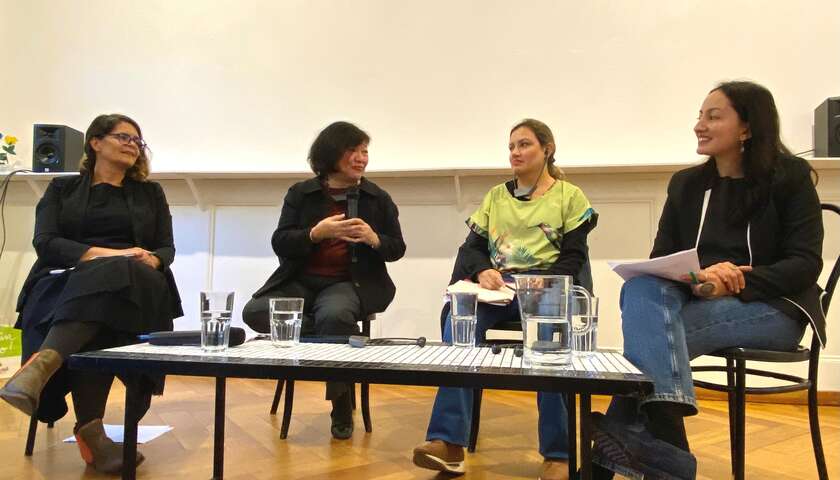
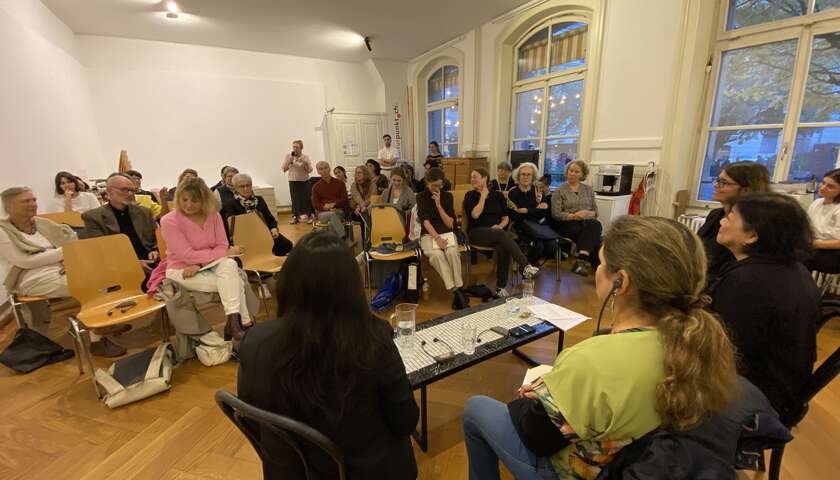
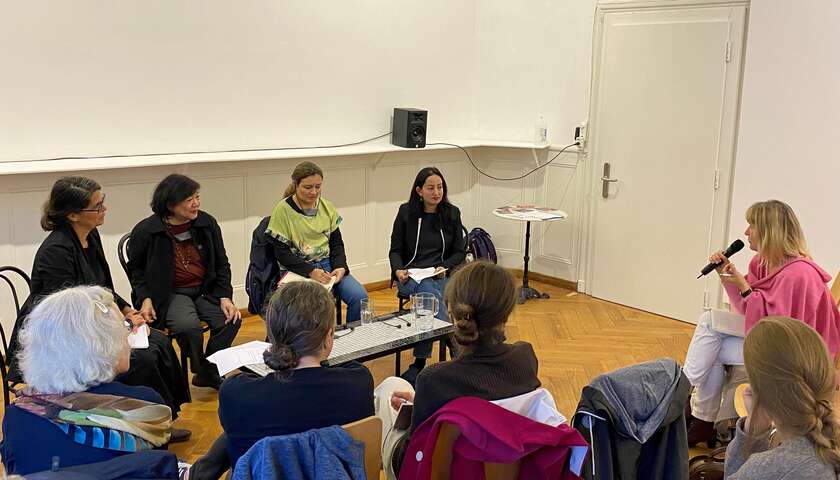
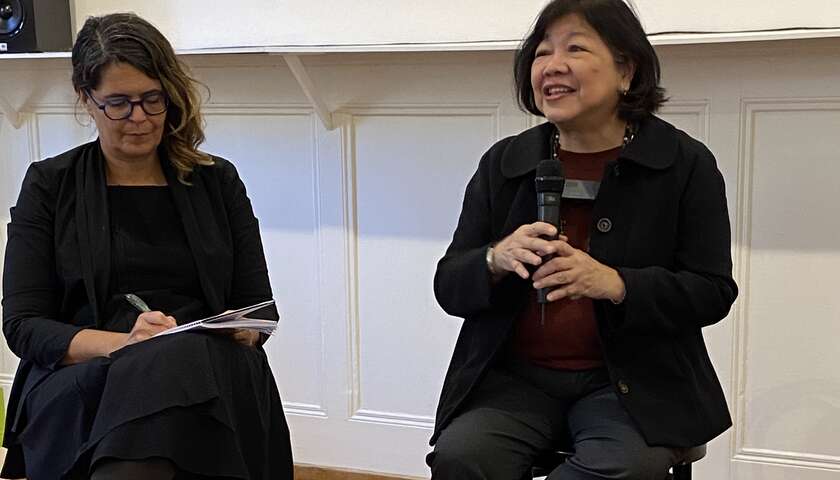
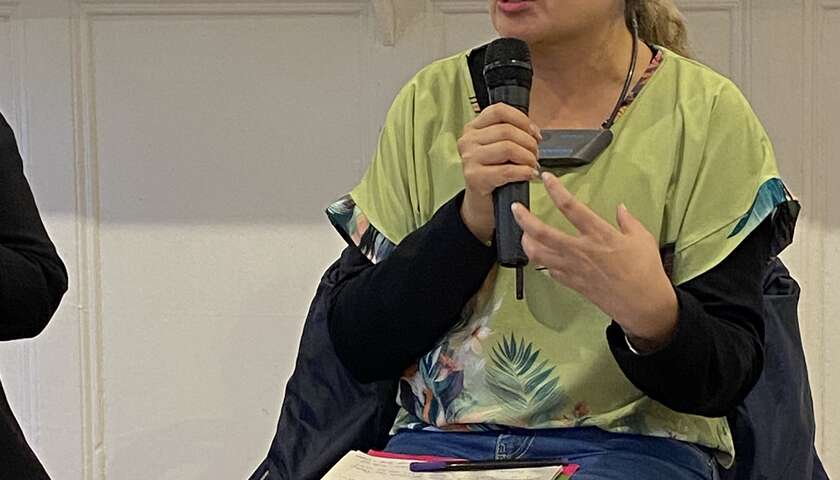
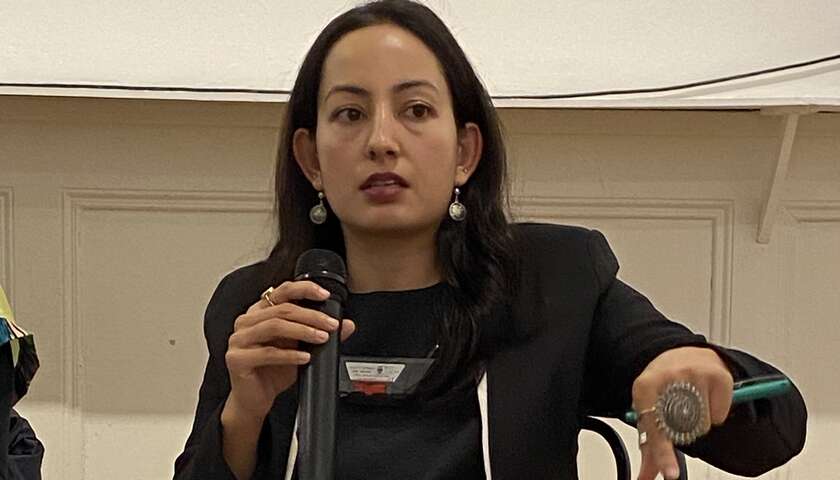
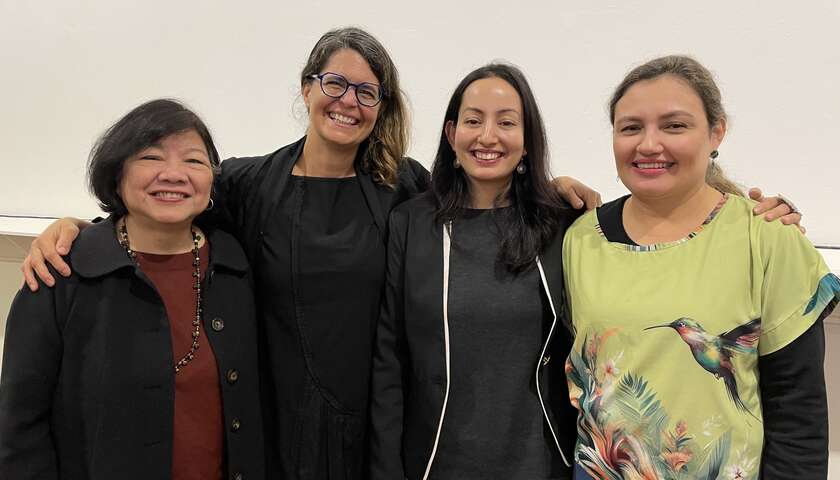
Earlier and later events
Previous post:
